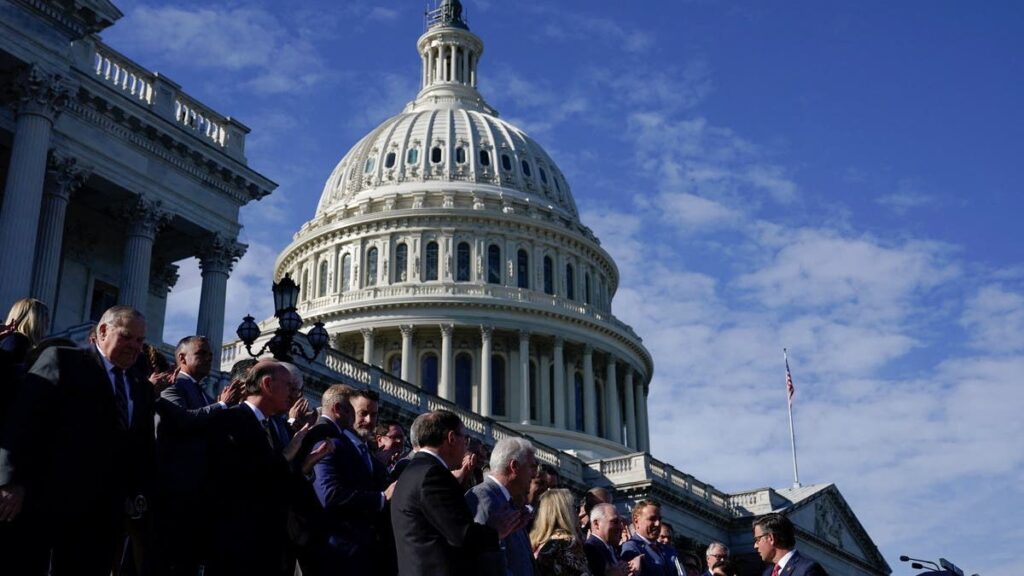US Congress Strikes a $1.6 Trillion Spending Deal for 2024

Leaders in the US Congress have reportedly reached an agreement on a $1.6 trillion spending package for the remainder of 2024, aiming to avert a potential partial government shutdown. The proposed figure encompasses $886 billion allocated for defence and over $704 billion for non-defence expenditures. However, there is some inconsistency regarding the exact numbers.
According to Republican House Speaker Mike Johnson, the deal, which must still gain approval from the House of Representatives and Senate, includes safeguards against cuts to benefits and health, a provision sought by Democrats. While acknowledging that the funding amount may not satisfy everyone, Johnson conveyed the urgency of finalising funding within the approaching two-week timeframe to prevent the suspension of certain federal services.
The House Freedom Caucus, a conservative Republican group within Congress, criticised the deal as a “total failure,” expressing concerns about the ongoing spending trend in Washington. Democrats Hakeem Jeffries and Chuck Schumer, House Minority Leader and Senate Majority Leader, respectively, countered this perspective, stating that the agreement allows Congress to act promptly, maintaining crucial funding priorities and avoiding a government shutdown.
President Biden welcomed the progress, emphasising that it brings the country closer to preventing an unnecessary government shutdown and safeguarding essential national priorities. Lawmakers are set to resume negotiations in Washington, addressing funding for programmes such as transport, housing, and energy, with a deadline of January 19. Another round of annual funding, covering sectors including defence, expires on February 2.
This spending agreement follows a short-term deal signed in October by President Biden to temporarily avert a federal shutdown. Such shutdowns typically occur when Congress fails to agree on the necessary federal spending before the start of each fiscal year. The current situation involves the need for bipartisan support due to the slim majority held by Republicans in the House and Democrats in the Senate. Additionally, negotiations continue on a separate bill, including $50 billion in military aid to Ukraine, with ongoing discussions about further security aid to Israel following recent attacks.
